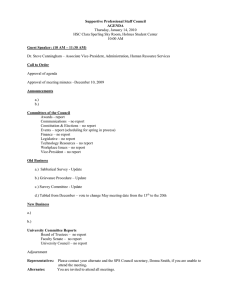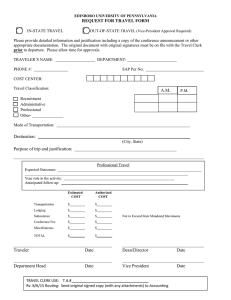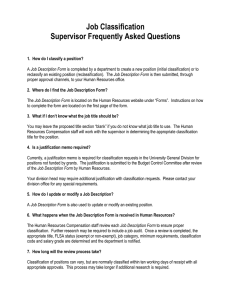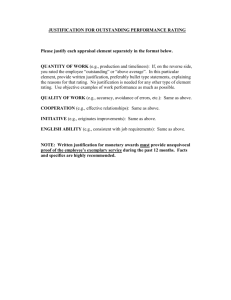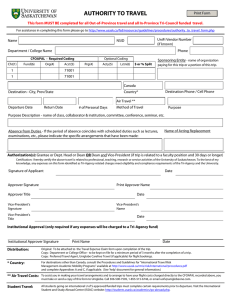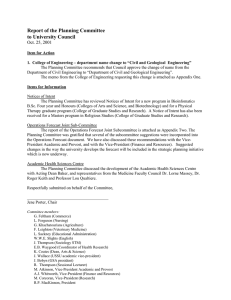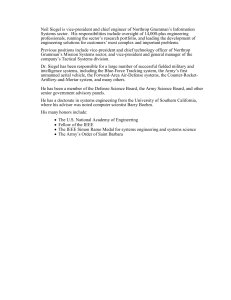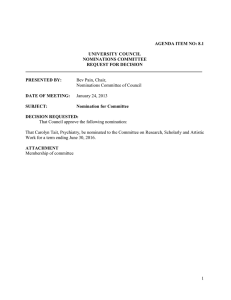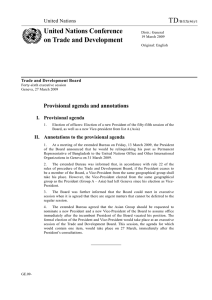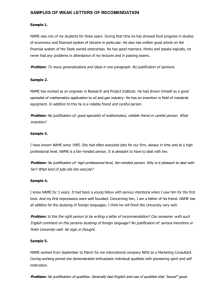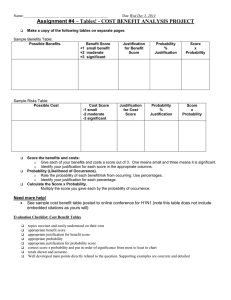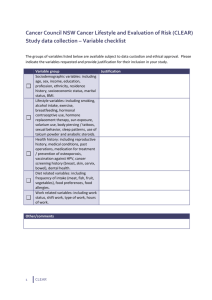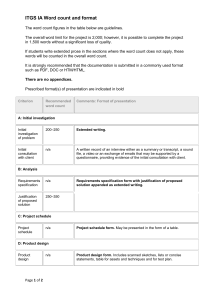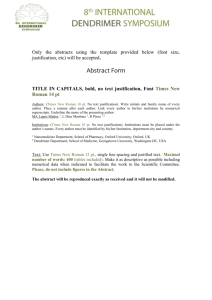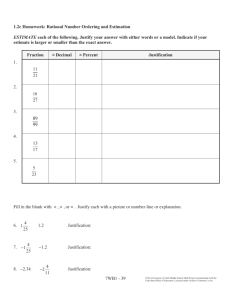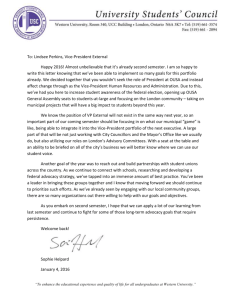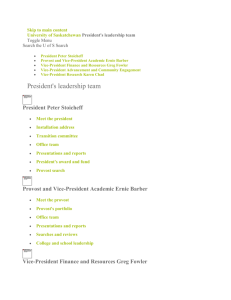Policy on Use of Animals for Educational Purpose
advertisement
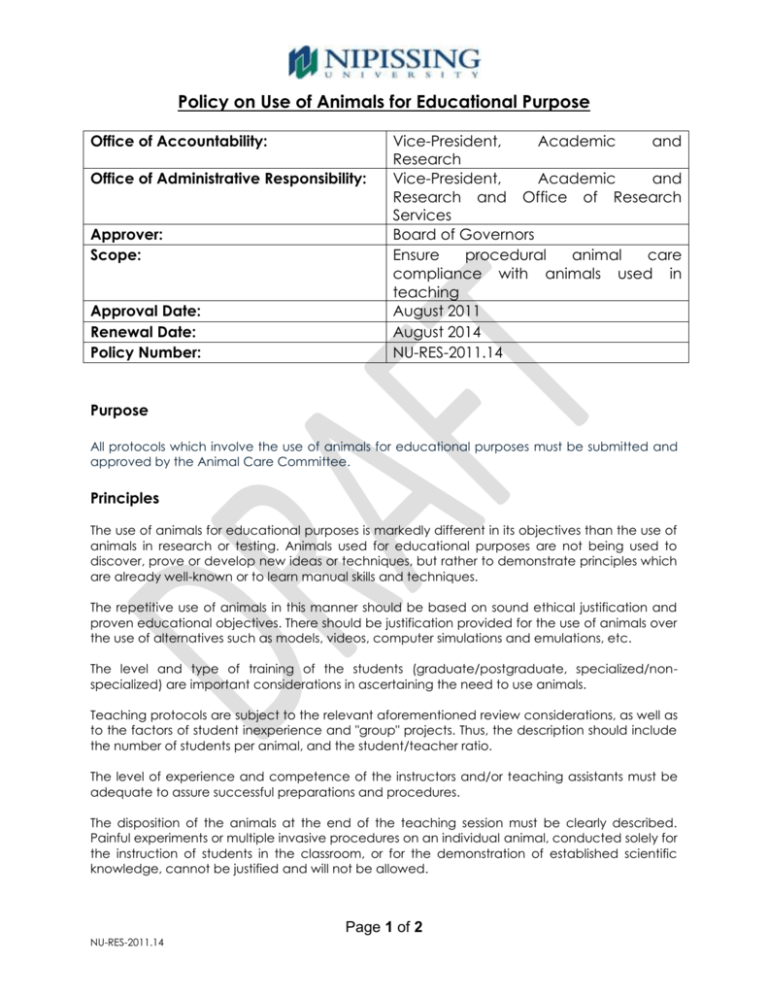
Policy on Use of Animals for Educational Purpose Office of Accountability: Office of Administrative Responsibility: Approver: Scope: Approval Date: Renewal Date: Policy Number: Vice-President, Academic and Research Vice-President, Academic and Research and Office of Research Services Board of Governors Ensure procedural animal care compliance with animals used in teaching August 2011 August 2014 NU-RES-2011.14 Purpose All protocols which involve the use of animals for educational purposes must be submitted and approved by the Animal Care Committee. Principles The use of animals for educational purposes is markedly different in its objectives than the use of animals in research or testing. Animals used for educational purposes are not being used to discover, prove or develop new ideas or techniques, but rather to demonstrate principles which are already well-known or to learn manual skills and techniques. The repetitive use of animals in this manner should be based on sound ethical justification and proven educational objectives. There should be justification provided for the use of animals over the use of alternatives such as models, videos, computer simulations and emulations, etc. The level and type of training of the students (graduate/postgraduate, specialized/nonspecialized) are important considerations in ascertaining the need to use animals. Teaching protocols are subject to the relevant aforementioned review considerations, as well as to the factors of student inexperience and "group" projects. Thus, the description should include the number of students per animal, and the student/teacher ratio. The level of experience and competence of the instructors and/or teaching assistants must be adequate to assure successful preparations and procedures. The disposition of the animals at the end of the teaching session must be clearly described. Painful experiments or multiple invasive procedures on an individual animal, conducted solely for the instruction of students in the classroom, or for the demonstration of established scientific knowledge, cannot be justified and will not be allowed. Page 1 of 2 NU-RES-2011.14 The Canadian Council on Animal Care’s Three R’s Microsite http://threers.ccac.ca/en/alternatives/index.html is an excellent resource to assist in finding upto-date information on possible replacements, reductions and refinements to the use of animals. Board approved December 13, 2011 – Resolution 2011-12-06; (as per Plant & Property Committee) Page 2 of 2 NU-RES-2011.14
